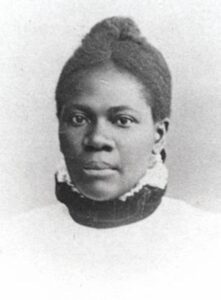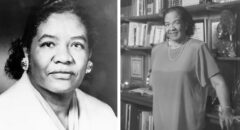
There are many accounts in American history of people who broke through obstacles and proved that everything is possible. Dr. Eliza Ann Grier is an outstanding example of a great lady who overcame the evils of slavery and had a distinguished career in medicine. Dr. Grier made history in 1898 when she became the first Black woman in Georgia to get a medical license. Her incredible journey from enslavement to becoming a revered doctor is a living testament to the power of perseverance, determination, and bravery.
Emancipation to Empowerment
Eliza Ann Grier had a difficult and uncertain beginning to her life since she was born into slavery. But her freedom was bestowed on her by the Emancipation Proclamation of 1863, which opened horizons that had never been imagined before.
Dr. Grier’s resolute will allowed her to pursue her goals, although many formerly enslaved people had difficulty assimilating into modern society. Despite the challenges she faced, they served to fuel her determination to follow her greater purpose: to become a doctor so she could help her community.
The Fight for Education
Racially segregated schools deprived Grier of chances that were legitimately hers, and she faced many obstacles in her pursuit of education. She persisted in pursuing knowledge in the face of these obstacles and attended Boston, Massachusetts’s New England Female Medical College. She received the training and knowledge she needed to become a prominent figure in medicine at this institution.
Breaking Barriers: The First Black Woman Licensed to Practice Medicine in Georgia
Dr. Grier returned to Georgia after finishing medical school with a mission to help people in her hometown and beyond. However, racial discrimination and the dominance of white male physicians persisted in the medical field. She overcame these insurmountable obstacles and became an inspiration to other Black medical students and a symbol of forward movement.
As a result of her hard work and knowledge, Dr. Grier became the first Black woman in Georgia to get a medical license in 1898, a significant milestone in the history of medicine. In addition to breaking racial barriers, her achievement demonstrated her extraordinary talent, expertise, and dogged persistence.
Legacy & Impact
Dr. Eliza Ann Grier’s revolutionary work has been a stepping stone for Black women in healthcare and permanently altered medical history. Her selfless dedication to helping those in need is a shining example of the compassion and equality that are essential to medicine.
The incredible bravery, resiliency, and steadfast commitment shown by Dr. Eliza Ann Grier on her path from enslavement to becoming the first Black woman physician in Georgia is an inspiration.
Despite her many setbacks, she remained steadfast in her mission to achieve greatness and improve her community. We can all take heart from Dr. Grier’s legacy, which shows that we can achieve our dreams with hard work and perseverance. This remarkable lady broke








